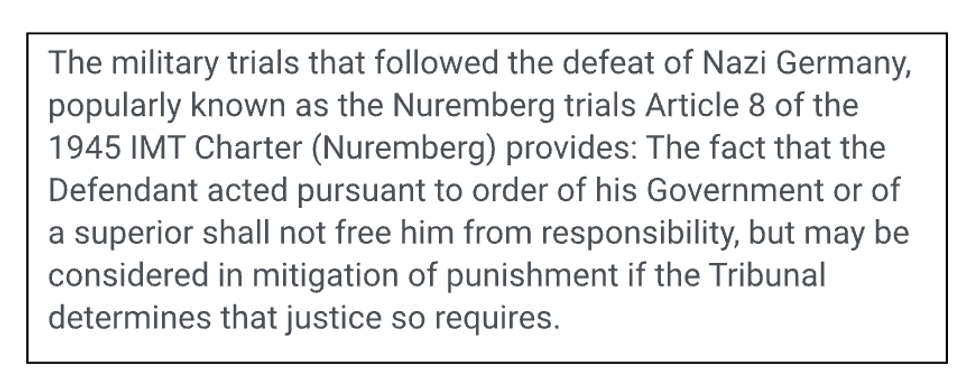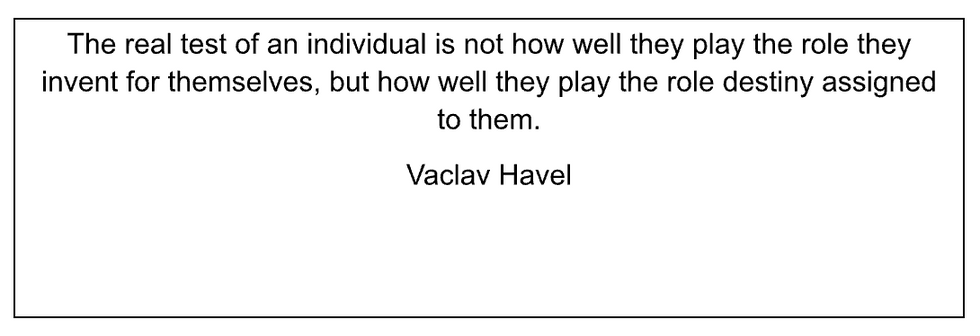Excerpt from To Stop a Tyrant by Ira Chaleff
In my book To Stop a Tyrant, I identify five types of a political leader’s followers. Given the importance of access in politics, I range these from the more distant to the closest. In the middle are bureaucrats. No political leader can accomplish anything without a cadre of bureaucrats to implement their vision and policies. Custom, culture and law establish boundaries for a bureaucrat’s freedom of action. At times, these constraints must be balanced with moral considerations. The following excerpt discusses ways in which bureaucrats need to thread this needle.
The Bureaucrat’s Dilemma When Dealing with a Charismatic Autocrat
There is a dilemma the bureaucrat dealing with an autocrat may face. Leaders and followers always interact within a specific context. In democratic societies, the strongman or autocrat is typically elevated to office in periods when the populace is experiencing social anxiety, economic uncertainty or external threat. They are primed for the message of a charismatic autocrat who promises them easy answers to difficult problems and targets the existing government as the problem for inaction.
While the charismatic populist is using and inflating the existing anxieties, there is often an element of truth to what they are saying. The people may be wondering why the government can’t do something to ease their anxieties or deprivations. The government can in fact do so, but it rarely moves quickly and dramatically. Its established processes, some mandated by law, some by rules and regulations, others by custom, often require the input of many constituencies and coordination between a number of different agencies and layers of government. This requires meetings, hearings, comment periods, collaboration, compromise and documentation, all of which take time.
A short-term value of the populist autocrat is that they do not hold themselves to these protracted processes. With little respect for diverse perspectives or conventional norms, they tear through the maze of obstacles and seek to ram through solutions. This is a two-edged sword. On one side of the blade, this cuts through cumbersome process and accelerates muscular responses to the conditions creating anxiety, earning the support of the populace. On the other side of the blade, ramming through solutions weakens the institutions designed to equitably assign resources to programs and populations, and opens the process to large scale corruption that is difficult to document.
The principled bureaucrat is committed to preventing the latter, but must be politically astute about not thwarting the former, which has the support of the populace. This is not a task that responds well to purists. The bureaucrat will need to walk the line to support rapidly easing the burdens of the populace while maintaining the integrity of the institution and its processes.
Refusing orders that violate human rights
The greatest responsibility for correct followership to political leaders resides in a special class of bureaucratic followers — the military, law enforcement, and intelligence services. There is a conundrum here. Those who serve in these authorized vehicles of State power must be willing to use force, and at times lethal force, at the command of legitimate political leadership, yet also need to be the most willing to disobey if the order is illegitimate.
In liberal democracies, the oath taken is to defend against all enemies of the constitution, internal and external. But in the case of a de facto or actual coup, both sides will claim legitimacy regardless of objective reality. How will military personnel, intelligence, or law enforcement officers recognize the true defender from the usurper?
The usurper of political power violates the essential values that protect individual freedoms and collective decision making, supposedly in defense of the State, while undermining their very core. The classical meaning of the term “liberal values” must be understood and differentiated from attempts to distort and degrade its meaning. Classical liberal values are the sacrosanct protections of individual freedom to think, speak, write, associate, congregate and live free of arbitrary government coercion. The only legitimate constraints on these rights are where their use denies or abrogates the same rights for others.
Interestingly, these rights conferred upon all human beings living within a society are not fully given to the bureaucrats themselves, or to the armed enforcers of the law and protectors of national defense. In those capacities, individual rights are subordinated to the constraints and responsibilities of the role they are serving. It would be chaotic if everyone in a government agency were freely giving their opinion to the media of the correct interpretation of events, policies and preferred strategies. Or enforcing their own interpretation of laws and regulations. There is merit to norms and rules that require government policy positions to be systematically developed, communicated and executed.
To thwart or support?
Bureaucrats know there are a variety of tools that can be used to thwart policy changes or implementations. Morally, this is again a two-edged blade. If being used to delay or block patently immoral policies one can argue the justifications for these tactics. But in a liberal democracy this is also a problem. The government is elected to formulate policies. If this is done in reasonably fair, transparent and lawful ways, it is not the place of the bureaucracy to thwart those policies.
But what about when the elected government operates in deceitful, secretive and unlawful ways — in other words as a proto-tyrannical government? What is the bureaucrat’s responsibility?
If the politics are still largely democratic, the offending government can be turned out of office in the next election cycle. Bureaucrats aware of this, may choose to slow walk, stall and delay policy approval or implementation to mitigate damage. The ethics of this can be argued, but the use of procedural power is part of the politically savvy tool kit. If the government retains power in a fair election, bureaucrats are faced with complying or, in egregious situations, resigning on principle. Continuing to sabotage the government undermines the representative government they are seeking to defend.
If the democratic political process has been eviscerated by an autocratic regime, reducing it to a mere fig leaf, how does the ethical equation change? It is in this situation that “just following orders” is a crime and followership is tested at its moral core.

It is in the window where the abuse of power is evident and documented, but before power is consolidated, that the bureaucrat needs to act. Once power is consolidated, senior positions will be filled with cronies, adjudication processes will be nullified or packed with lackeys, media channels will be suborned or shuttered, political opposition will be silenced.
The bureaucrat who has played it safe in their career is thrust into a moral role that is anything but safe. Their core principles tightly interwoven with political awareness, are needed if they are to walk with head held high (and still attached), through the minefield being lain by the proto-tyrant.
Taking the liberty to degenderize the words of the great playwright, political dissident, and former President of the Czech Republic, Vaclav Havel, they remain highly salient:

Ira Chaleff is a speaker, innovative thinker and the author of “ To Stop a Tyrant: The Power of Political Followers to Make or Brake a Toxic Leader. ”




















Trump & Hegseth gave Mark Kelly a huge 2028 gift